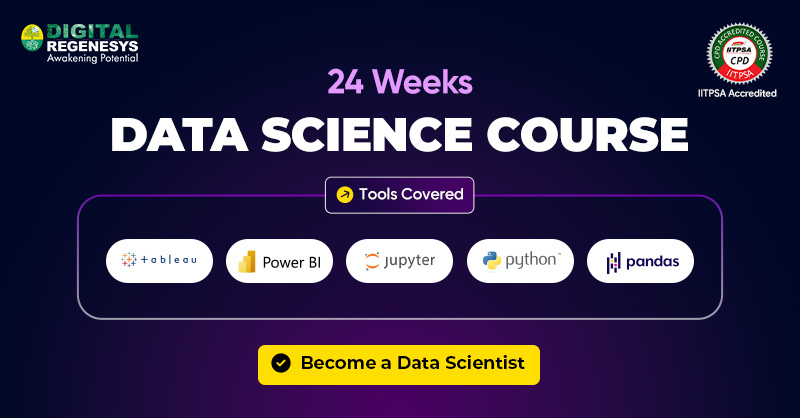What Are the Skills Required for a Data Science Course in South Africa?

Data science has become one of the most valuable fields in shaping decisions across industries. Organisations now rely heavily on data to plan growth, track performance, and predict trends.
For learners, pursuing a course in this area requires much more than interest. It involves gaining a solid set of skills that form the foundation of success in the classroom and beyond. These skills range from technical knowledge to softer abilities that enable effective communication and teamwork.
In this article, we will explore the skills required for a data science course in South Africa. Understanding these skills helps learners know what to expect before they start and ensures they are prepared to manage their coursework effectively.
From programming and mathematical knowledge to problem-solving and applying skills in projects, each area plays a critical role. Together, they ensure that learners can adapt to the demands of data science with confidence.
Introduction to Required Skills
Data science requires a combination of knowledge areas that extend beyond technical skills. Learners entering a course must be prepared to engage with different skill sets, each contributing to success in understanding and applying data concepts.
These required skills include mathematics, statistics, programming, data handling, and communication abilities. They also involve logical reasoning and critical thinking in SA to ensure that learners can solve real-world problems using data-driven approaches.
Here are the essential categories of skills learners should develop:
- Technical expertise: Programming languages, mathematics, and statistics are the technical backbone of a data science course.
- Analytical skills: Learners must develop the ability to interpret datasets and identify meaningful insights.
- Practical application: Skills must extend beyond theory to ensure real-world usability.
- Soft skills: Communication, teamwork, and problem-solving create a balanced learning experience.
Read more on the Guide to Becoming a Data Scientist in South Africa.

What Tools and Software do Data Scientists Use?
In data science, the right tools enable the effective collection, processing, and interpretation of data. By mastering these tools, professionals can transform information into actionable insights and make more informed decisions.
To get started, here are some of the most commonly used tools and software in data science:
1. Python
Python is a versatile and beginner-friendly programming language. It enables data scientists to clean data, perform statistical analysis, build machine learning models, and efficiently automate repetitive tasks.
2. R
R is specialised for statistical computing and data visualisation. It excels in analysing complex datasets, performing advanced statistical tests, and creating visual representations that make insights clear for teams and stakeholders.
3. SQL
Structured Query Language (SQL) is essential for managing and retrieving data from databases. Data scientists use it to filter, sort, and aggregate large datasets quickly and accurately.
4. Tableau
Tableau is a powerful visualisation tool that transforms raw data into interactive dashboards. It enables teams to easily explore trends, patterns, and correlations without requiring advanced coding skills.
5. Power BI
Power BI is another visualisation platform that simplifies reporting and dashboard creation. It integrates with multiple data sources, presenting data in a clear, interactive way to support business decision-making.
6. Git and GitHub
Version control tools like Git and GitHub help track code changes, collaborate with teams, and maintain organised project workflows, which is crucial for reproducibility and teamwork.
By mastering these tools, data scientists can effectively collect, analyse, and present data, turning insights into actionable solutions that drive innovation and growth.
Read more: Seek Transition Into Tech Space With Data Science
Mathematics and Statistics Skills Required for a Data Science Course in South Africa
A solid understanding of mathematics and statistics is essential to qualify for a data science course. These areas provide the reasoning and problem-solving tools required to analyse datasets and evaluate results.
Learners who focus on maths skills for data science in SA gain the ability to understand algorithms, interpret models, and test hypotheses. At the same time, statistics knowledge for data science in SA is critical for identifying patterns and making informed predictions.
Together, they ensure that learners can approach problems with both logic and accuracy.
Here are the mathematics and statistics skills to build:
- Mathematical foundations – Algebra, calculus, and linear equations provide the structure for building and adjusting models.
- Probability – Understanding uncertainty enables learners to design predictive models and assess risk effectively.
- Statistical methods – Skills in hypothesis testing, regression, and distributions are central to analysing datasets effectively.
- Quantitative reasoning – Logical and numerical thinking ensures reliable decision-making and supports data-driven outcomes.
Analytical Thinking and Problem-Solving
Technical knowledge alone is not enough to succeed in data science. Learners must also sharpen their ability to think analytically and solve problems effectively. Analytical thinking allows learners to interpret large datasets and identify patterns.
Problem-solving ensures they can address challenges that arise during analysis. Together, these abilities form the foundational soft skills of a successful data scientist. Developing analytical skills for data science in SA, alongside problem-solving skills, makes learning more practical and prepares learners for real-world challenges.
Here are the areas to focus on for this skill set:
- Pattern recognition: Identifying meaningful insights from raw datasets supports better decision-making.
- Critical thinking: Questioning results and testing multiple perspectives ensures more accurate conclusions.
- Structured problem-solving: Breaking down complex issues into smaller steps makes them easier to manage.
- Adaptability: Being open to adjusting approaches ensures resilience when working with data challenges.
Read more on Best Digital Transformation Online Course in SA | Skills & Career Pathways.
Data Handling and Cleaning Skills
Raw data is rarely ready for immediate use. It often contains missing values, errors, or inconsistencies. Therefore, learners must focus on data handling skills in SA to ensure they can prepare datasets for accurate analysis.
Data cleaning forms one of the most time-consuming yet essential parts of the workflow. Learners who develop this ability are better prepared to qualify for a course and manage assignments with real-world datasets.
Here are the skills needed in data handling and cleaning:
- Data organisation: Sorting, structuring, and storing data properly makes it easier to analyse later.
- Error detection: Identifying mistakes ensures data quality is maintained.
- Data transformation: Adjusting data formats, scaling, and normalising values ensures models work correctly.
- Accuracy focus: Consistently maintaining data integrity helps prevent misleading results.
Communication Skills Required for a Data Science Course in South Africa
A key skill often overlooked in data science is communication. Learners must clearly explain their findings and ensure that stakeholders can understand the results. Equally important is teamwork, as data projects are rarely completed alone.
Developing communication skills for data science in SA prepares learners to share insights effectively, while teamwork ensures that collaboration leads to stronger solutions. Courses emphasise these skills because they are critical for applying technical knowledge in group projects.
Here are the skills to strengthen communication and teamwork:
- Presentation clarity: Using simple words to explain complex results makes insights accessible to all.
- Visual storytelling: Charts and graphs add meaning to findings, making data easier to interpret.
- Collaboration: Working with peers develops stronger solutions and builds collective learning.
- Listening ability: Paying attention to feedback ensures results meet the needs of the audience.
Read more on What is a Data Science Course? Learn Skills and Benefits.
Applying Skills in Real Projects
Skills become valuable only when applied in practice. Learners must therefore work on real projects during their course. These projects combine technical and soft skills, providing learners with confidence and valuable experience.
Applying knowledge also ensures learners are ready for advanced concepts, such as machine learning basics in SA. Real projects offer an opportunity to test skills in a controlled yet realistic environment, bridging the gap between classroom learning and real-world challenges.
Here are the benefits of applying skills in projects:
- Integration of knowledge: Projects combine programming, mathematics, and statistics in meaningful ways.
- Hands-on learning: Working with datasets builds confidence and practical expertise.
- Problem-solving application: Real tasks allow learners to practise solving genuine challenges.
- Preparation for the future: Applied learning ensures readiness for advanced topics later in the course.

Conclusion
Success in data science begins with preparation. Understanding the skills required for a data science course in South Africa helps learners focus on what matters before enrolling. These skills cover programming, mathematics, statistics, analytical thinking, problem-solving, teamwork, and data handling.
Each skill supports the others, creating a well-rounded learner who can progress with confidence. By developing these skills, learners are better equipped to qualify for courses and perform successfully throughout their studies.
At Digital Regenesys, the Data Science Certificate Course is designed to equip you with the essential skills necessary for success. The course covers programming, statistics, mathematics, and machine learning concepts in a structured and comprehensive manner.
Learners gain both theoretical knowledge and practical experience through exercises and projects. With an emphasis on real-world applications, the course ensures that learners can apply their skills confidently in professional settings.
Explore the course today to see how it can help you strengthen your foundation in data science.
Visit the Digital Regenesys website to learn more and take the next step towards your data science journey.
Last Updated: 13 October 2025
